The Syrian 'chessboard' and Russia's role as 'judge'
(Baonghean) - The war that has lasted for nearly 9 years in Syria with many participants is like a complicated and messy political-military chessboard. The developments in the past week are rapidly changing the game. The US withdrawing troops, Türkiye entering the war, the Kurds joining hands with the Syrian Government... all are creating a new situation in this Middle Eastern country.
Advantages for the Syrian Government
The US decision to withdraw troops from Syria is seen as a “green light” for Türkiye to launch its long-awaited attack on Kurdish forces in northern Syria. But Ankara is not the only party “benefiting” from the US withdrawal.
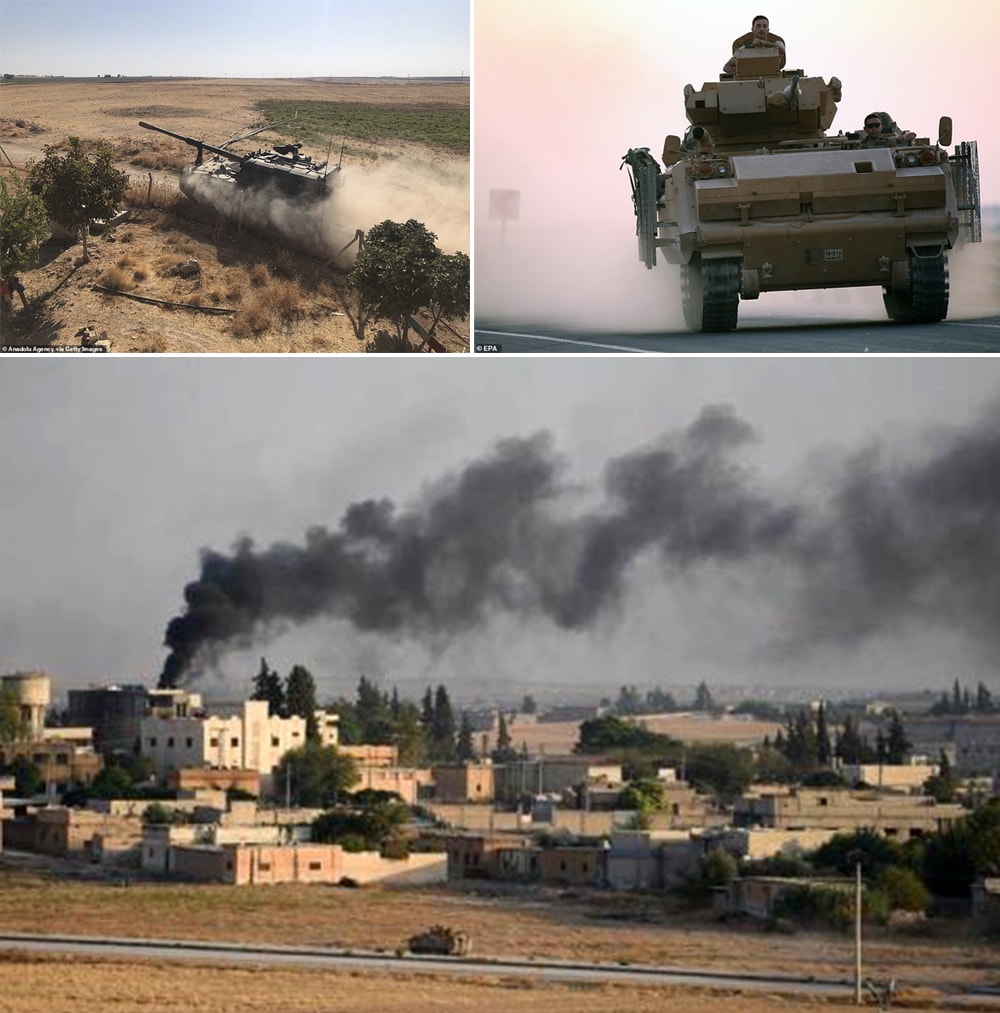 |
| Turkish tanks enter the town of Tel Abya, attacking Kurds in Syria. Photo: Getty Images/EPA |
Syrian President Bashar al-Assad, who has been a target for Western countries to overthrow, now has the opportunity to regain the initiative on the Syrian "chessboard". In a somewhat surprising move, the Kurdish forces in the North had to "appeal for help" from the Syrian Government to join forces to prevent the Turkish attack. According to the agreement between the two sides, the Syrian army deployed along the Syrian-Turkish border to prevent attacks by the neighboring country's army, protect territorial integrity, and prevent the conflict from escalating and causing a humanitarian disaster in the region.
Faced with the powerful Turkish army and the US turning its back, the Kurdish forces had no choice but to compromise with Damascus.
In return, the Kurds had to give up a large part of their autonomy in the Northeast of the country. This is a significant change since the Syrian civil war broke out. Previously, the Syrian government considered the Kurdish militia in the North as "traitors" when they joined hands with the US, hoping to establish their own country. But now, facing the powerful Turkish army, the US "turned its back", the Kurdish forces had no choice but to compromise with Damascus.
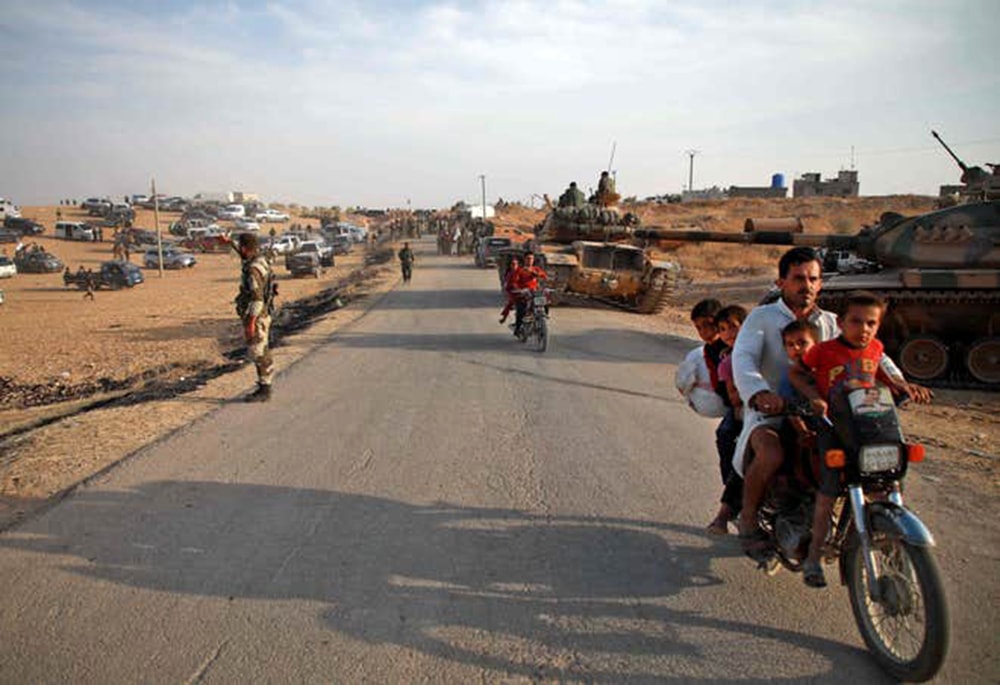 |
| Civilians flee as Turkish troops invade northern Syria. Photo: AFP |
This compromise represents a “victory” without a fight for the Syrian government. The alliance agreement between the Kurds and the Syrian government opens up a rare opportunity for Damascus to take control of many cities and towns in northeastern Syria and move towards unifying the entire territory after years of conflict. This is of great significance as the Damascus government currently controls only about 60% of the territory, while the vast and resource-rich northeast, especially oil, abundant water resources and fertile agricultural land, was previously controlled by Kurdish forces.
Although it is not yet certain that President Bashar al-Assad's government can re-establish sovereignty over the northeastern region of the country, at least representatives of the Syrian government and the Kurds have been able to contact and dialogue in an agreement that meets the interests of both.
The Syrian crisis is nearing its end, observers say, and Assad could emerge as the winner in all possible scenarios. If the Kurds agree to “surrender” completely to the Syrian government to avoid a Turkish massacre, Assad would, of course, win. If Turkey manages to capture Kurdish areas – a process that could be bloody – Assad would still essentially win, with no more “thorn” in the side of separatists in the north.
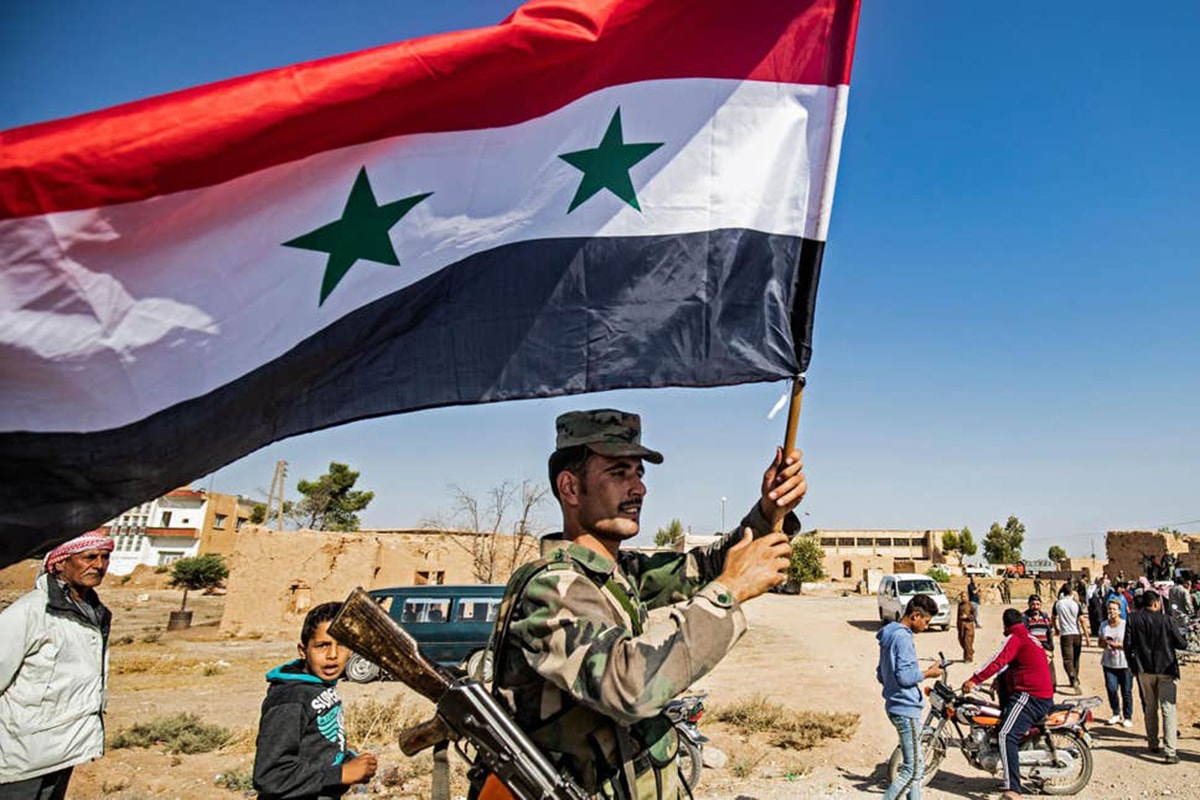 |
| Syrian government troops arrive at the town of Tel Tamer, Hasakeh province. Photo: AFP |
Russia's role as "judge"
Russia is not only an ally of the Syrian government but also plays the role of "judge"...
Russia has been the Syrian government’s most important ally for decades, entering the Syrian war in 2015 as a protector of President Assad’s regime. The Russian military has shipped weapons to Damascus, trained thousands of soldiers, and placed its advisers in key Syrian military units. However, with the US withdrawal, Russia is no longer just an ally of the Syrian government, but also a “judge” in the changing landscape of the war.
For now, the Russian military is patrolling the northern border area of Syria with the mission of preventing Syrian and Turkish forces from fighting each other. Military experts say that, in addition to the goal of restraining clashes between the two forces, the deployment of troops shows that Russia also wants to ensure that Turkey does not try to advance deeper into Syrian territory. Previously, Russia also played the role of a mediator, pushing the Syrian government and the Kurds to sign a temporary cooperation agreement.
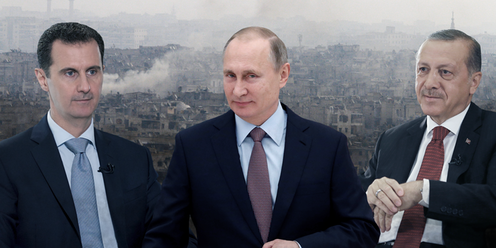
Syrian President Bashar al-Assad (left), Russian President Vladimir Putin and Turkish President Recep Tayyip Erdogan. Photo: Reuters
As for Türkiye, Moscow made a wise move by not publicly supporting Ankara’s “Peace Spring” operation, but also not strongly opposing it. Russia simply issued warnings to ensure that Ankara’s military operation in northern Syria would be limited in scale and duration. President Putin called on his Turkish partner to consider his actions carefully and to withdraw its forces from Syrian territory after completing the operation, ensuring Syria’s sovereignty and territorial integrity.
In their latest phone call on October 15, Mr. Putin and Mr. Erdogan reaffirmed their support for Syria’s territorial integrity and maintaining the political settlement process in the country. Analysts say that Ankara’s military campaign also provides a valuable opportunity for Moscow, which is to “push” the US military out of Syria and increase its influence.
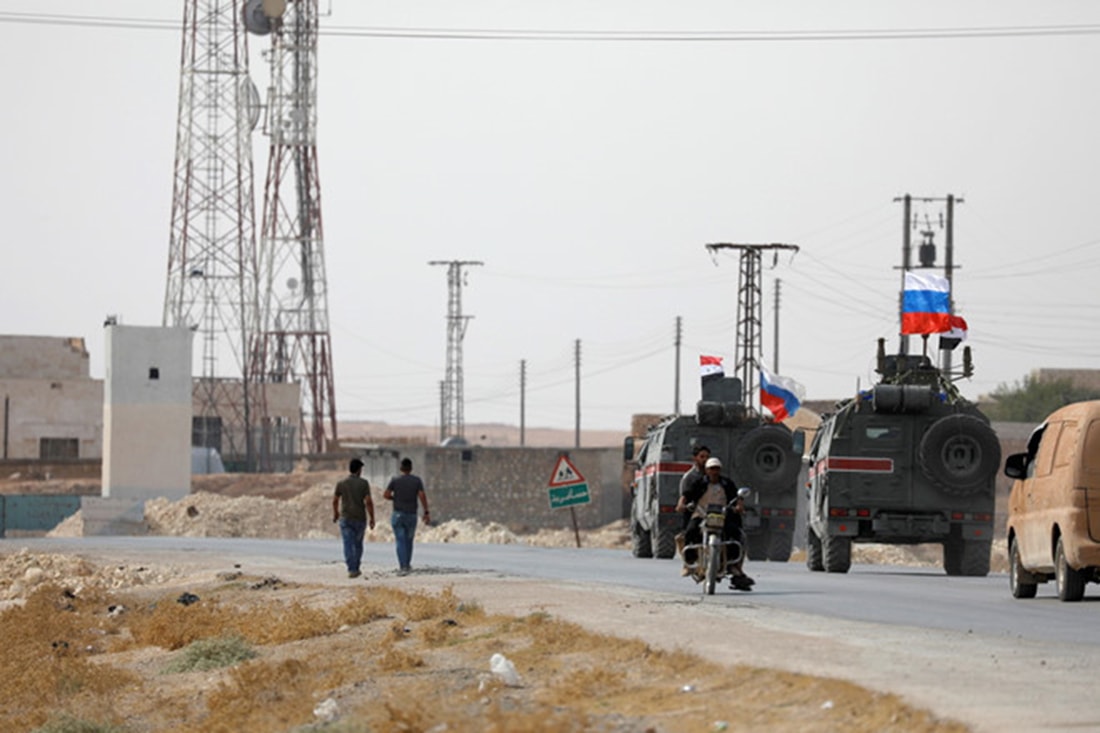 |
| Russian military convoy on the outskirts of Manbij, after the US withdrew its troops from the area. Photo: Reuters |
Russia has succeeded in bringing the Kurds to the dialogue table with the Syrian government, the next task is to solve the Turkish problem. According to Russian sources, it is expected that in the next few days, Turkish President Erdogan will visit Russia to meet his counterpart Putin to discuss security issues in Syria. Compared to Washington, Moscow's negotiations with Ankara will be much easier to achieve results. Especially in the context that these two countries are maintaining good relations, in many fields from economics to military. The situation of the war in Syria may soon be decided after discussions between Putin - Erdogan, between the Damascus government and the Kurds.
If this “arbitration” role is successful, the nearly nine-year war in Syria could come to an end. It would be an important geopolitical victory for Russian President Putin, giving Moscow a new position in the Middle East in the context of Washington’s increasing isolation from the region.
 |
Map showing the situation in Syria. Graphics: BBC |

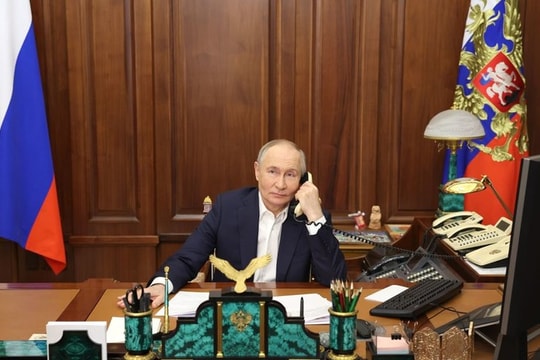
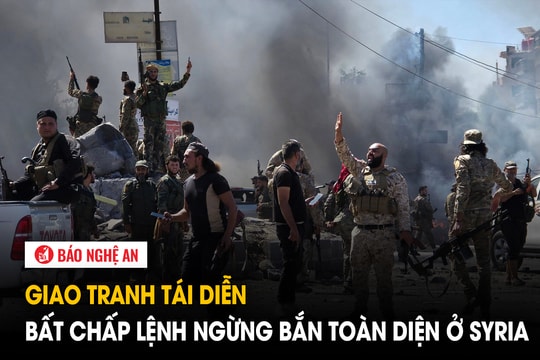
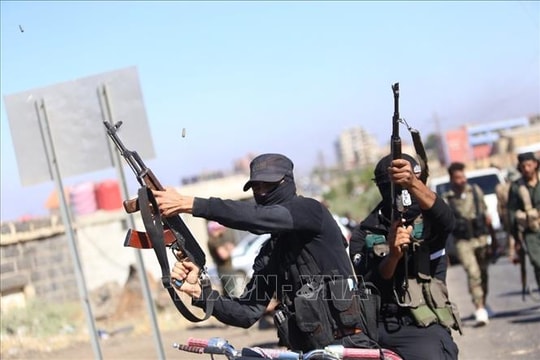
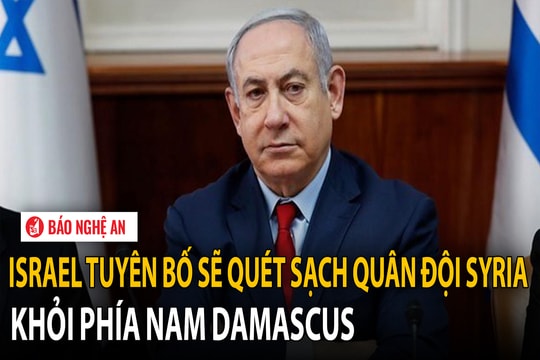
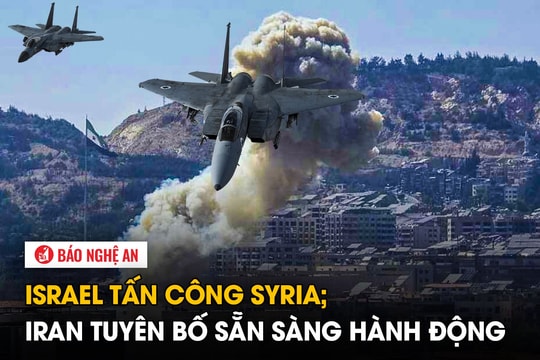
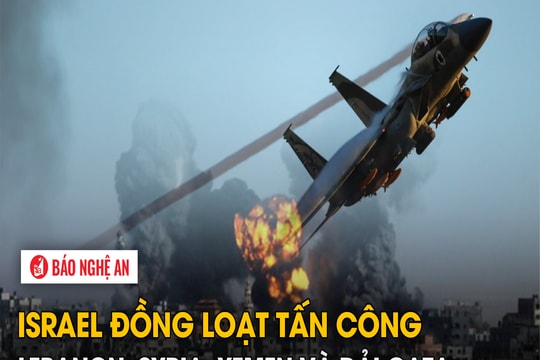
.jpg)
